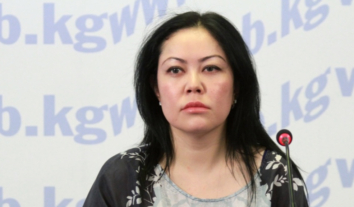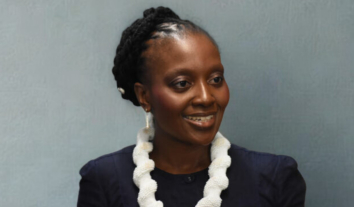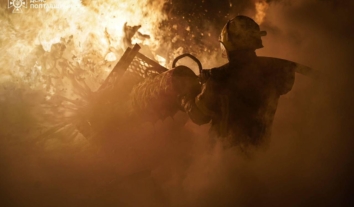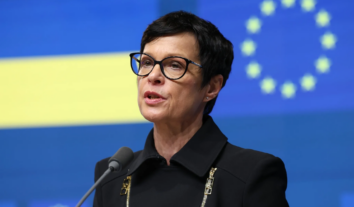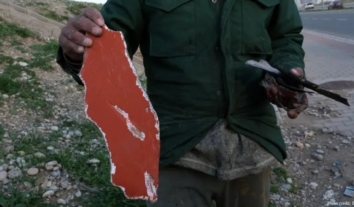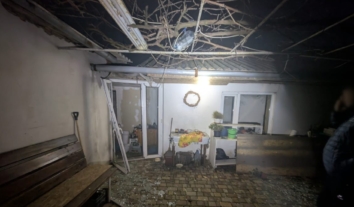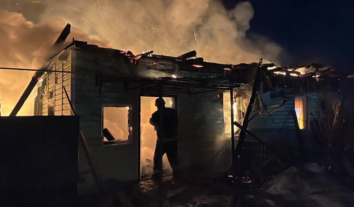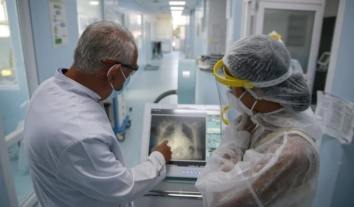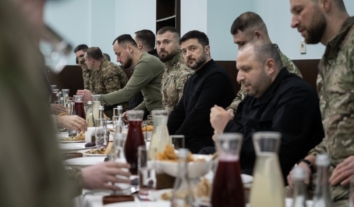“Not alone”: indigenous peoples unite in struggle against global conflicts
Today, I am speaking in my personal capacity as an Indigenous person from the state of Manipurі . This land has been under militarisation for the last 70 years, home to dozens of Indigenous groups, living in my territory under armed conflict.”
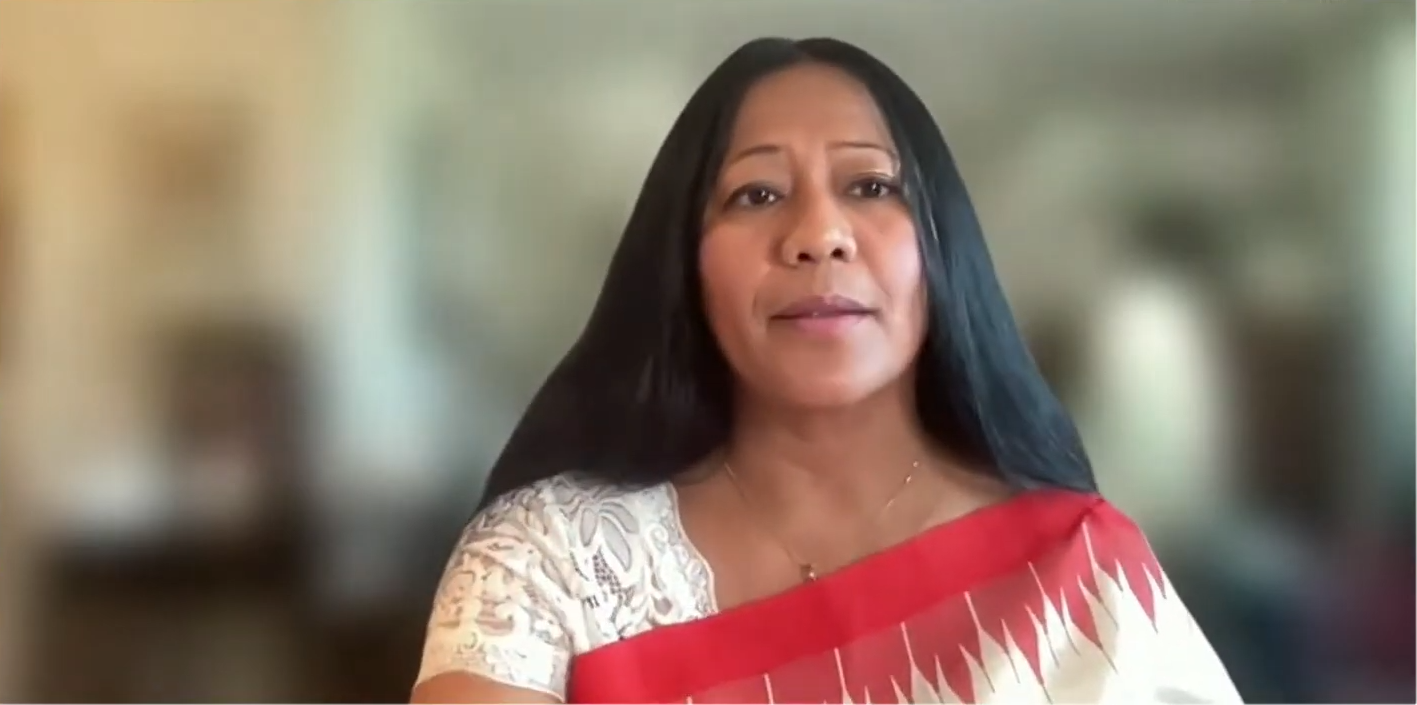 Binalakshmi Nepram, Senior Advisor on Indigenous Issues, United States Institute of Peace; Expert on Global Indigenous People Alliance, Gender Justice, and Peace/ Video screenshot
Binalakshmi Nepram, Senior Advisor on Indigenous Issues, United States Institute of Peace; Expert on Global Indigenous People Alliance, Gender Justice, and Peace/ Video screenshotThe world feels your pain. The world feels the pain of what’s happening in Crimea and Ukraine.
You are in our thoughts and prayers, and I know the courage you’ve demonstrated over the past decade in resisting oppression is now legendary worldwide. So we thank you for your courage and for the work you have done.
With that said, I would like to share what we are doing because it is not about this particular time in our history. While paying our respects to our elders, we also have a duty towards the younger generation and the children yet to be born.
We cannot be living in a place of constant warfare. We cannot live in fear of nation-states attacking us. That is not normal. That is not how the world should be.
I want to make two points very clear. First, who are Indigenous people? What does being Indigenous mean?
Many people think it’s a political term, but for us as Indigenous people, it’s about taking care of people who have been left behind – people whose languages and history have faced attempts at erasure.
The inclusion of marginalised communities in our nation-building, state-building, and global community-building is the heart of what we do as Indigenous communities, nations, and territories.
Second, when I first came to the UN Permanent Forum on Indigenous Issues as an Indigenous person, I came from a tiny place at the end of the Himalayas called Manipur, and I thought nobody had heard of us. But when I came to the UN Permanent Forum on Indigenous Issues and met thousands of Indigenous people from around the world, representing 476 million from 90 countries and territories, I knew I was not alone.
To the Indigenous people of Ukraine and Ukrainians everywhere: you are not alone.
Once we realise the power of our togetherness, because 80% of the world’s conflicts are happening now in biodiversity hotspots where Indigenous people live, it becomes imperative to include Indigenous people in negotiations to end wars, aggression, and colonial and authoritarian regimes.
We must ensure the rule of law, democracy, and the right to preserve our people, languages, traditions, and ways of life.
As a result, we achieved something remarkable this year, and I am glad that Crimean Tatars were there with an extended invitation. Just before the UN Permanent Forum happened in April, on the 11th and 12th of April, about 80 indigenous leaders gathered in Washington, D.C. from more than 30 countries, belonging to about seven socio-cultural indigenous zones of the world.
We realise that what’s happening in Crimea, Manipur, Sudan, Guatemala, or Cameroon – we are all connected. You may be sitting here talking only about Crimean Tatars, but when I heard your story, I realised our stories are so similar across the globe, highlighting the need for global solidarity.
At the first Global Summit on Indigenous Peacebuilding, we created the first International Declaration on Indigenous People, now signed by over 50 Indigenous leaders.
Article One of this declaration proclaims that today’s world urgently needs meaningful peacebuilding that works for all. The violence in our lives is unacceptable, and we must immediately take steps to address it, aiming for zero violence in Indigenous territories.
We’ve also established the first-ever global network of Indigenous peacebuilders, mediators, and negotiators. Іf Indigenous people are suffering in Crimea today, resolving your crisis shouldn’t be left solely to the people of Crimea or Ukraine – this is a global crisis.
What hurts Ukraine, what hurts the Crimeans, what hurts the Crimean Tatars, hurts all of us. My mother has never been to your region, but when we heard about the war and what you are feeling, we all felt your pain.
Finally, we brought the outcomes of the first Global Summit to the United Nations. We met with the UN Under-Secretary-General on Peacebuilding and asked him to include Indigenous mediation and negotiation policies to help resolve our crises.
Let me be frank with you. As a historian by training and after many years in conflict resolution, I’ve come to a sobering realization: many peace-building and war-stopping techniques aren’t working.
Why? Because war is profitable. As people fight and lose loved ones, someone else is profiting.
We must ensure, as Mahatma Gandhi said, that there’s enough for everyone’s needs in this world, but not for everyone’s greed. We must stop the continued colonization of our lives and territories driven by greed.
Finally, we’re pleased to share that we’ll be holding a meeting with supportive countries at the upcoming UN General Assembly to examine Indigenous peace-building methods.
I’ll conclude by emphasizing that what’s happening in our regions and Indigenous lands can have global repercussions. By working together, we can confront today’s challenges and bring about the peace we deserve.
Speech at the Expert Forum of Crimean Platform by Binalakshmi Nepram, Senior Advisor on Indigenous Issues, United States Institute of Peace; Expert on Global Indigenous People Alliance, Gender Justice, and Peace



